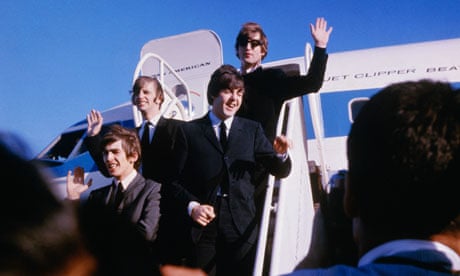There's a line in EMI's accounts that notes the value of its music catalogues; the amount, by the way, is £3bn at the last time of asking. It's hardly a trivial sum for those who believe music to be worthless, or those who seek to discount the value of the Beatles' recorded catalogue.
Yet, arguably, the catalogue is the most influential body of work in the history of rock'n'roll, its repeated plays on radio, television – and in people's heads – testifies to music's enduring value.
Meanwhile, EMI's owner for the next 10 minutes, the wholly inappropriate Citigroup, is in the process of dismembering the British music company. Perhaps it deserves to die too.
But it does not deserve to die in such silence, where Jeremy Hunt (the secretary of state for culture no less) seems to care not a jot. Contrast that with the same Hunt who was so pleased that a painting by Flemish artist Brueghel was saved for the nation with the help of £2.7m in donations in January.
No doubt the Brueghel – The Procession to Calvary – will pay its own way. No doubt having just three global music companies makes sense too. After all, if a recording artist falls out with one of them, then there's a choice of a whole two others.
But it seems odd that cultural businesses are judged by different rules from paintings: if a company is to be broken up and sold so be it, regardless of the consequences. Perhaps that is the inference from the culture secretary's position: paintings are more important than music.
Unfortunately, the mess that Citi finds itself in is becoming all too apparent. A trickle of bidders have emerged, with so little bank lending available. The most viable buyer for EMI's Motown and more song copyright division is BMG, part owned by Bertelsmann and the venture capitalists at KKR.
But Bertelsmann is not big enough, or dumb enough, to buy the whole company, including the hit and hope recorded music division. Which means EMI must be broken up, abandoning the job of artist discovery to the three others left in the game.
Dissolution and break-up creates all sorts of issues. The pension fund, £162m in deficit on the last set of available figures, could widen as most of the 21,500 pensioners would have to go with the financially weaker recorded music division. Probably to about £400m.
No doubt the most obvious buyer, Warner Music, isn't wild about taking that on. No wonder its bid for recorded is not better than $1.5bn – but then Warner's new owner, Len Blavatnik, thinks Citi has no option but to sell. So he can afford to walk away.
The second problem is the European Commission. Can Citigroup be sure that the perpetually touted Warner-EMI merger will get past the regulator?
It may help that there is no prospect of a song catalogue/music publishing merger. But Citigroup won't want to be saddled with the risk of the recorded music merger going through; so presumably Warner would have to warehouse EMI's record labels until it gets clearance.
That, though, would amount to a gun being put to the commission's head: after all, if Brussels said no, with the publishing business presumably in the hands of BMG, the rump recorded operation with its 21,500 pensioners would look like a very sickly beast indeed.
Unfortunately, Citigroup appears desperate to offload the major part of the British music business. But the auction is running into problems; the underlying company's future is uncertain.
None of that, though, seems to trouble Hunt or his government, which seems quite content for £3bn worth of global musical history to hang in the balance. And this is a business that the UK likes to think it is good at.
More important to help save a 400-year-old work of a Flemish master instead. Procession to Calvary indeed.
To contact the MediaGuardian news desk email editor@mediatheguardian.com or phone 020 3353 3857. For all other inquiries please call the main Guardian switchboard on 020 3353 2000. If you are writing a comment for publication, please mark clearly "for publication".

